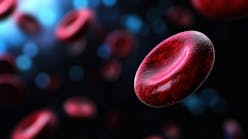Amendment 2 was passed in November 2016 legalizing medical marijuana in the state of Florida. The amendment qualifies patients with certain conditions to obtain a medical marijuana registry card and purchase marijuana from licensed medical marijuana dispensary.
Legally obtaining medical marijuana. It ain’t easy.
I imagine like most states that offer medical marijuana, the state’s Department of Health – in this case, “Florida Health” — has an Office of Medical Marijuana Use and a Medical Marijuana Use Registry — both of which are accessible online. Don’t know how to use the internet? Well, then, hopefully your caregiver does.
The Office of Medical Marijuana Use is responsible for three things:
- Writing and implementing the department’s rules for medical marijuana
- Overseeing the statewide Medical Marijuana Use Registry, and
- Licensing Florida businesses to cultivate, process, and dispense medical marijuana to qualified patients.
The Florida Health Medical Marijuana Use Registry is used by two groups:
- Physicians – for providing Patient and Legal representatives (or caregivers) email addresses for electronic Compassionate Use Registry Identification Card Applications (or identification card) and
- Patients and Legal Reps – for “Identification Card” registration. Caregivers are also required to register; the department may limit the number of qualifying patients a caregiver may assist at one time and the number of caregivers that a qualifying patient may have at one time. Caregivers are prohibited from consuming marijuana obtained for medical use by the qualifying patient.
The website states that it is the responsibility of the qualified ordering physician to follow Florida constitution and statute, diagnose patients and determine if medical marijuana is an appropriate treatment.
The site offers a list of physicians within the state of FL who have completed the required training for prescribing medical marijuana which will get you the required “Physician Certification.” At this time, out of the 810 or so qualified ordering Florida physicians, 24 are located in the city of Sarasota (home of NP Communications, producer of MLO). Looking thru the list, it runs the gamut – the usual suspects, such as Oncology, Surgery, Internal Medicine, Psychology, Neurology – then there are more abstract medical specialties I wasn’t expecting to see, such as Family Practice, Dermatology, OBGYN, and Sports Medicine.
What you’ll need
You must be registered on the Florida Health Compassionate Use Registry website, which in addition to entering information for your qualified prescribing physician, prompts creation of a username and password, your demographics, including address, date of birth, patient number, patient weight, and if applicable, two legal representatives (caregivers), proof of FL residence, and an annual card processing fee of $75.
During the implementation of the registry card program, patients verify identity and registration using a Florida Driver License, or Florida Identification Card. However, as of November 3, 2017 all patients and caregivers must have an approved registry identification card application prior to filling an order at an approved medical marijuana treatment center.
Florida’s Office of Medical Marijuana Use began issuing qualified patient identification cards only as recently as October 3, 2017 and began issuing registry identification cards a bit earlier, in March of 2017. You’ll need both.
The card expires one year after the date of your first order and they advise to start renewing 45 days before your current card expires.
Qualifying for “compassionate use” of medical marijuana
Medical use (or compassionate use) of marijuana, in the ordering physician’s opinion, needs to outweigh the potential health risks for the patient. The physician also recommends how long the patient can use the marijuana. The “Physician Certification” is only provided after the physician has conducted a physical examination and a full assessment of the medical history of the patient. In order for a Physician Certification to be issued to a minor, a parent or legal guardian of the minor must consent in writing.
The 2017 Florida Statutes, updated early this year (January 3, 2017), states, “A patient must be diagnosed with at least one of the following conditions to qualify to receive marijuana or a marijuana delivery device: cancer, epilepsy, glaucoma, HIV, AIDS, PTSD, ALS, Crohn’s, Parkinson’s, MS, medical conditions of the same kind or class as or comparable to those mention above, a terminal condition diagnosed by a physician other than the qualified physician issuing the physician certification, and chronic nonmalignant pain. Click, here, for the legal mumbo-jumbo of qualified conditions: http://www.leg.state.fl.us/statutes/index.cfm?App_mode=Display_Statute&Search_String=&URL=0300-0399/0381/Sections/0381.986.html
To be (high) or not to be (high)
The two main chemicals used in the medicinal application of marijuana are:
- Tetrahydrocannabinol, or THC. This is the psychoactive compound in marijuana — i.e. the element that produces the ”high.”
- Cannabidiol, or CBD. This substance does not produce any psychoactive effects. However, recent research has shown CBD to have analgesic, anti-inflammatory, and anti-anxiety properties without the psychoactive effects that THC provides.
When a physician places an order, they must specify if the order is for Low‐THC Cannabis which contains very little THC, or Medical Cannabis, which contains THC.
Low-THC cannabis is defined as containing 0.8 percent or less of THC and containing 10 percent or more CBD. High-THC cannabis strains often tout levels over 30 percent. Of course the percentages are all relative based on supplier, strain, growing conditions, etc. This is a different article all-together!
But not so fast
The physician will also record the Form – such as oral, vaporizers, and so on. They can save up to two forms in each of your Orders. For each form, they’ll record an amount per dose and number of doses per day they want you to take. Each order has different types of Statuses:
- Scheduled: this order ‘turns on’ in the future; you can’t get product(s) until the Start Date listed.
- Open: this order is ‘live’ and your Dispensing Organization can dispense for it.
- Complete: you’ve obtained all the products allowed for the order, and it’s done now.
- Expired: the End Date of the order happened, and you can no longer use it to obtain products.
- Cancelled: your physician ‘turned off’ the order.
It will expand to show you the history of all the times you obtained products from a Dispensing Organization. You’ll be told when, where, who recorded it, and how much. If a dispensation is out for delivery, you’ll see which staffer currently has the products.
You’ll also see how much products you had left after each dispensation.
So just remember….
The Florida Department of Health, physicians, dispensing organizations, and patients are bound by Article X Section 29 of the Florida Constitution and 381.986 Florida Statutes, which basically means:
So now we’ve covered two important topics: (1) the difference between medical and recreational cannabis use, (2) how patients can legally obtain medical cannabis (in the state of Florida). Now, how will medical cannabis affect drug testing in the medical lab?
Stay tuned to find out.






